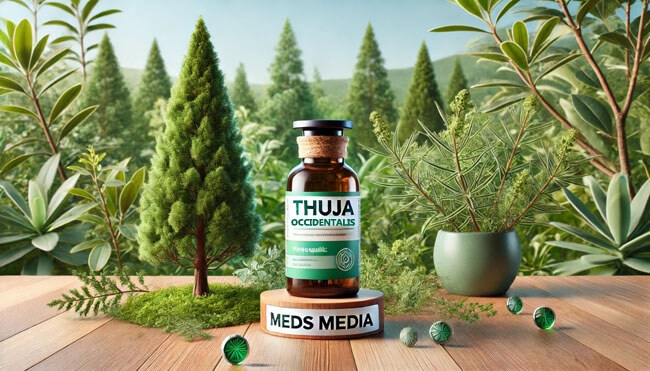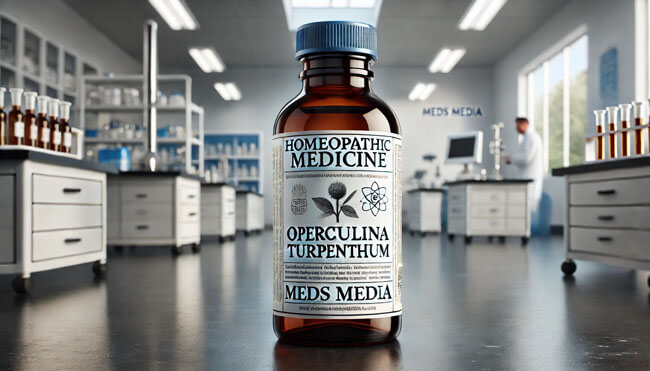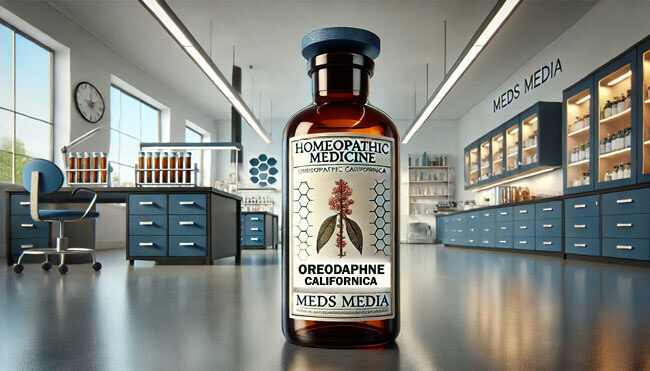
THUJA OCCIDENTALIS ( THUJ ) Homeopathic Uses & Treatment Insights
Thuja Occidentalis, a key remedy in homoeopathic medicine, acts on various systems of the body including the skin, blood, gastrointestinal tract, kidneys, and brain. Its profound effect on pathological growths such as warts, condylomata, and spongy tumors makes it a significant treatment in the homoeopathic repertoire. This remedy is also known for its antibacterial action, especially in conditions like gonorrhoea and issues stemming from vaccination. Thuja is particularly suitable for individuals with a sycotic constitution, reflecting specific mental and physical symptoms as per Hahnemann’s theory of chronic disease.
Key Systems & Conditions Addressed by Thuja Occidentalis
Skin and Genito-urinary Systems
Thuja primarily affects the skin and genito-urinary organs, where it helps address wart-like growths, known as condylomata and fig-warts, which occur on both mucous membranes and the skin. The remedy is beneficial in cases of:
Symptoms:
- Warts: Moist mucous tubercles and bleeding fungus-like growths.
- Warty excrescences: Typically seen on the vulva and perineum in women, or the prepuce and glans in men.
- Excessive perspiration: Especially before menstruation, often associated with a sycotic constitution.
- Gonorrhoea and suppressed gonorrhoea: Used in chronic cases to alleviate associated sycotic pains, such as tearing sensations in muscles and joints.
Materia Medica Insights: Thuja excels in promoting healthy skin and is often used to treat skin conditions that involve growths and eruptions, such as warts, polyps, and spongy tumors. It also plays a crucial role in easing genito-urinary issues, such as gonorrhoea, by providing antibacterial effects. It is particularly effective in patients who suffer from sycotic dyscrasia, where moisture and damp environments exacerbate symptoms.
Mental and Emotional Symptoms
Thuja has notable effects on the mind, often producing a state of emotional sensitivity and fixed ideas.
Symptoms:
- Fixed delusions: Patients may feel as if a stranger is beside them or experience a sensation of their body and soul being separated.
- Emotional hypersensitivity: Music may provoke tears and trembling, signaling a heightened emotional state.
Materia Medica Insights: These mental symptoms reflect the deeper sycotic constitution, characterized by emotional fragility and deep-seated delusions. Thuja’s action helps soothe the mind and brings relief to those prone to such psychological disturbances.
Head and Scalp Conditions
Thuja is useful in treating various headaches and scalp-related issues:
Symptoms:
- Left-sided headaches: Particularly severe, as if pierced by a nail.
- Scaly dandruff: Accompanied by hair that is dry and falling out.
- Greasy skin: Especially on the face, which may be prone to pimples or blemishes.
Materia Medica Insights: The remedy helps alleviate chronic headaches and improves overall scalp health, providing relief from dryness, dandruff, and excessive hair loss. It’s especially beneficial for individuals with a greasy complexion and prone to recurring skin problems.
Eye and Ear Afflictions
Thuja addresses both ocular and aural conditions:
Symptoms:
- Ciliary neuralgia: Pain around the eyes.
- Styes and tumors: Especially on the eyelids.
- Chronic otitis: Ear discharges that may be purulent in nature.
Materia Medica Insights: By reducing inflammation in the eyes and ears, Thuja provides relief from chronic infections, including sty formation, iritis, and scleritis, promoting healthier eye and ear function.
Gastrointestinal and Urinary Complaints
Thuja excels in managing digestive and urinary system ailments:
Symptoms:
- Chronic diarrhoea: Often worse after breakfast with gurgling sounds in the abdomen.
- Indigestion: Accompanied by flatulence, dislike for meat, potatoes, or onions, and a general loss of appetite.
- Urinary issues: Including frequent urination, a split stream, or pain after urination.
Materia Medica Insights: Thuja’s role in promoting digestive health is notable, especially in those with flatulence, loss of appetite, or specific food intolerances. Its effect on the urinary system helps in managing urethral inflammation and bladder paralysis, making it a valuable remedy for chronic conditions.
Male and Female Reproductive Health
In men and women, Thuja addresses conditions linked to the reproductive system:
Symptoms:
- Balanitis: Inflammation of the prepuce and glans in men.
- Prostatic enlargement: Frequent urination and burning near the neck of the bladder.
- Ovarian pain: Especially in the left ovary, worse during menstruation.
- Leucorrhoea: Greenish, thick vaginal discharge in women.
Materia Medica Insights: Thuja plays a major role in male reproductive health, particularly in cases of gonorrhoea and prostate enlargement. For women, the remedy is highly effective in managing ovarian pain and profuse leucorrhoea, ensuring better reproductive system functioning.
Respiratory System
Thuja also benefits the respiratory tract, especially in cases of chronic respiratory illnesses:
Symptoms:
- Chronic laryngitis: Accompanied by a dry hacking cough, worse in the afternoons.
- Asthma: Particularly in children, often linked to weather changes or damp environments.
Materia Medica Insights: Thuja’s ability to support respiratory health makes it ideal for managing asthma in children and relieving laryngeal and bronchial inflammations.
Musculoskeletal System
In terms of the musculoskeletal system, Thuja helps manage conditions where the joints and muscles feel stiff or weak:
Symptoms:
- Lameness and stiffness: Muscles and joints feel worse at rest and better in dry weather.
- Pain in heels: Including soreness in the tendons.
Materia Medica Insights: Thuja supports healthy joint and muscle function, particularly for those experiencing chronic stiffness, pain, or lameness that worsens in humid environments.
Skin Conditions
Thuja is renowned for addressing various skin afflictions:
Symptoms:
- Warts: Particularly on covered body parts, worse from scratching.
- Brown spots: Especially on the hands and arms.
- Herpetic eruptions: Particularly sensitive to touch.
Materia Medica Insights: This remedy is highly effective in treating warts, blotches, and other skin growths. Its action on epidermal health makes it a go-to remedy for individuals with chronic or recurring skin issues.
Sleep and Fever Conditions
Symptoms:
- Persistent insomnia: Patients often experience difficulty in falling or staying asleep, leading to chronic sleep deprivation.
- Fever: Chills typically begin in the thighs. Profuse sweating occurs on uncovered parts of the body or all over, except for the head, when sleeping. The sweat is often sour-smelling, reminiscent of honey. An evening orgasm of blood results in throbbing sensations in the blood vessels.
Materia Medica Insights: Thuja is effective for sleep disturbances, particularly persistent insomnia, and helps manage feverish conditions marked by sweating and chills. Its action targets individuals who experience significant evening discomfort, particularly those with throbbing sensations in the blood vessels.
Modalities: Conditions Worsened or Improved by Thuja
Worse:
- Night: Especially from the heat of the bed.
- 3 am and 3 pm: Symptoms aggravate at these times.
- Cold, damp air: Exacerbates symptoms, reflecting its suitability for sycotic individuals who react adversely to dampness.
- After breakfast, fatty foods, coffee, and vaccination.
Better:
- On the left side: Symptoms tend to improve.
- While drawing up a limb: Certain symptoms, such as pain, are alleviated with this motion.
Comparative Remedies and Relationships
Compare with:
- Hydrogenoid constitution: Similar to remedies like Calcarea, Silica, Natrum Sulphuricum, Aranea, Apis, and Pulsatilla.
- Cupressus australis: Known for sharp, prickling pain, warmth sensations, and a relation to rheumatism and gonorrhoea.
- Cupressus Lawsoniana: Shares similar actions with Thuja, particularly in addressing stomach pain.
- Sphingurus: Associated with hair loss from the beard and pain in the jaw-joint and zygoma.
Other related remedies include Silica, Mercurius, Cinnabaris, Terebinthina, Juniperus, Sabina, Cantharis, Cannabis, Nitric Acid, Pulsatilla, Antimonium Tart, and Arborin (a non-alcoholic preparation of Thuja).
Antidotes and Complementary Remedies
Antidotes:
- Mercurius, Camphora, and Sabina (particularly for warts).
Complementary Remedies:
- Sabina, Arsenicum, Natrum Sulphuricum, and Silica work well with Thuja to enhance its healing effects.
Recommended Dosage
For external applications on warts and excrescences, Thuja is used in tincture or cerate form. When administered internally, doses typically range from the tincture to the thirtieth potency, depending on the condition being treated.
Disclaimer:
This information is for educational purposes only and is not a substitute for professional medical advice, diagnosis, or treatment. Always consult your physician or a qualified healthcare provider regarding any medical condition. Use homeopathic remedies under the guidance of a certified practitioner.
Select Your Homeopathic Medicine Dose and Potency
Potency Selection Guide
Relationship of Remedies
Thuja Occidentalis Personality in Homeopathy
Why our homeopathy guides are different
We break down classical homeopathic ideas, remedy personalities, and prescribing tips into clear explanations so students and patients can follow along without jargon.
This homeopathy site is for study and education only. For any health concern, always work with a qualified doctor or registered homeopathic practitioner.
Similar Posts You may also like

NITRO MURIATICUM ACIDUM HOMEOPATHIC MATERIA MEDICA | Uses, Symptoms & Benefits Guide

NITRI SPIRITUS DULCIS HOMEOPATHIC MATERIA MEDICA | Uses, Symptoms & Benefits Guide

NUPHAR LUTEUM HOMEOPATHIC MATERIA MEDICA | Uses, Symptoms & Benefits Guide

NUX MOSCHATA HOMEOPATHIC MATERIA MEDICA | Uses, Symptoms & Benefits Guide

NUX VOMICA HOMEOPATHIC MATERIA MEDICA | Uses, Symptoms & Benefits Guide

NYCTANTHES ARBOR TRISTIS HOMEOPATHIC MATERIA MEDICA | Uses, Symptoms & Benefits Guide

OCIMUM CANUM HOMEOPATHIC MATERIA MEDICA | Uses, Symptoms & Benefits Guide

OENANTHE CROCATA HOMEOPATHIC MATERIA MEDICA | Uses, Symptoms & Benefits Guide

OLEUM ANIMALE AETHEREUM: HOMEOPATHIC MATERIA MEDICA – Symptoms Guide

OLEUM JECORIS ASELLI: HOMEOPATHIC MATERIA MEDICA – Symptoms Guide

OLEUM SANTALI: HOMEOPATHIC MATERIA MEDICA – Symptoms Guide

OLEANDER: HOMEOPATHIC MATERIA MEDICA – Symptoms Guide

ONISCUS ASELLU: HOMEOPATHIC MATERIA MEDICA – Symptoms Guide

ONOSMODIUM VIRGINIANUM: HOMEOPATHIC MATERIA MEDICA – Symptoms Guide

OPIUM: HOMEOPATHIC MATERIA MEDICA – Symptoms Guide

OPERCULINA TURPENTHUM: HOMEOPATHIC MATERIA MEDICA – Symptoms Guide

OPUNTIA FICUS: HOMEOPATHIC MATERIA MEDICA – Symptoms Guide
